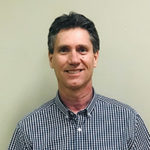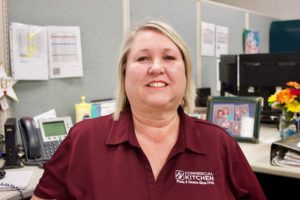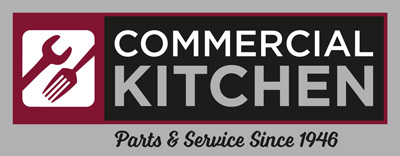by David Duckworth | Company Culture, Industry

By David Duckworth, Director of Corporate Operations
One of the biggest challenges the food equipment repair industry faces is finding qualified people who can perform the service work. We need technicians that are trained in the basics of electricity, gas, steam, and/or refrigeration who have both mechanical and people skills. Unfortunately, those individuals are very hard to find unless they are coming from another service company and even then we still have to train them our way of doing things. Unfortunately, even after that onboarding, we still have not added someone new to the industry, which results in a net zero gain.
In 2001 we were in dire need of technicians to keep up with our growth. Knowing we would not be able to find people with those qualifications easily. Commercial Kitchen made the decision to try something new: we would train and develop our own technicians internally and pay them to learn. We wanted to teach people the Commercial Kitchen way of performing service from the ground up. We decided to call it Commercial Kitchen University (CKU).
We ran ads searching for people interested in starting a new career. We used a testing program, from a company called Wonderlic, which tested their cognitive skills, personal traits, and mechanical skills to ensure they were the right fit for the program. Once we selected the people who met the qualifications, we followed our normal hiring process of drug screening and background checks. As a member of the Commercial Food Equipment Service Association (CFESA), Commercial Kitchen has access to certification training material for electricity, gas, and steam and we used those materials for our classes.
The CKU program lasts 12 weeks. The first section of the class is critical, teaching the electric portion. After two weeks of studying electricity we tested the students. If the students pass the written exam they were allowed to continue with the program. If they failed they were let go. We wanted them to take the program serious. We were investing a lot of time and money in them. We then moved through the other disciplines of gas and steam. We also included customer service skills and made arrangements with factories to come and train on their specific equipment. We started with 12 people and after 12 weeks we finished with 6. Three of those individuals are still working for us today. Some of them that left us are still in the business and buying parts from us. Everyone agreed the program was a success. We took a break on the program for a while. In 2006 we started talking about restarting the program and developing it into a normal recurring class. We also wanted to centralize all of our training and development into one department. I was promoted to Director of Field Operations and Training/Development in 2006. In 2007 we relaunched the program and graduated 7 technicians.
Over the last 12 years, we have made improvements to the program, including reducing the number of students per class and holding two classes a year rather than one. We have developed work books, power points and hands on training modules, and a variety of equipment to teach with. Since the 2007 relaunch we have graduated over 20 technicians. Charles Moreland was added as the Technical Trainer for the program. He was one of the graduates from the first class in 2001. In 2019 we have one class scheduled starting on August 12th.
It has been great to watch these people develop into great technicians. They now have a skill they can use for a long career in the food service repair business.
by David Duckworth | Company Culture, Industry

By David Duckworth, Director of Corporate Operations
The Commercial Food Equipment Service Association (CFESA) is a professional trade association comprised of companies who perform service and distribute parts for commercial foodservice equipment manufacturers. The membership is comprised of companies all over the world, but primarily located in the United States, Canada, and Mexico. CFESA places importance on training, sharing of resources, best business practices, and helping create the standard for training used throughout the industry. Their goal is to drive service excellence in the industry.
Of the over 400 members that make up the CFESA organization, a select few have managed to reach the top tier, becoming a Certified CFESA company. Only around 30 or so companies have reached this level of excellence within the association. The process of becoming a Certified CFESA company is stringent. Not only that, but a Certified company will only remain at that level for 3 years before they need to renew that certification. It is sometimes harder to maintain the certification than it is to attain it.
Becoming CFESA Certified is not a simple task. There are a number of criteria which must be met, all of which are graded on a point system during the review process. To begin with, 75% of the business done by the prospective company must be based around parts and service. Second, the company must have been in business and in good financial condition for at least 72 months. The prospective company must also be a voting member of CFESA in good standing before they are eligible to begin the certification process.
The certification has requirements in 5 areas including: financial, education & training, industry participation, industry relations and professionalism. These criteria are measured and calculated using a stringent point system. Here are some of the criteria in more detail:
- Training and Education Standards – This area includes levels of certification on electric, gas, steam, and refrigeration. All technicians employed over 2 or more years must have at least 2 of these CFESA certifications. At least 25% of technicians must be “master technicians”, meaning that they have certifications in three or more of the categories. Technicians must also complete a minimum of two Manufacturer specific trainings within a 3-year period.
- Participation Standards – This area includes regular attendance at CFESA national conferences, speaking at any of the industry conferences, and contributing to the association on one of the various committees. Additionally, contributing to the CFESA magazine and membership on CFESA Board of Directors can also count toward certification.
- Professionalism – A minimum level of insurance is required, and the company must demonstrate it is in sound financial condition. Each office must have a posted mission statement. Stationary, vehicles, emails etc. must have the CFESA logo included to help with brand recognition. All work must carry a 90-day parts and labor warranty.
- This list is far from complete, but goes to show the level of commitment that a company must have in order to attain and maintain the Certified CFESA status. Commercial Kitchen has proudly been a CFESA Certified company since 2004 and just completed the renewal process earlier this year.
Commercial Kitchen Parts & Service is committed to providing fanatical service and unrivaled expertise. Achieving and maintaining the CFESA Certified company status is an example of that commitment.
by Commerical Kitchen | Company Culture

JoBeth Brehm, Customer Service Rep- 24 years with the company.
JoBeth Brehm, who has worked at Commercial Kitchen for twenty-four years, currently works as a Customer Service Rep. Like many employees in the company, she enjoys not only the fast-paced work environment but also the opportunity to help customers solve the unique problems they encounter so that their operations running smoothly.
Prior to Commercial Kitchen, JoBeth worked for a catering business where she saw how things work from the “other side of the fence,” as it were. She decided that she would need to transition to an office job as she grew older, so she took on a part-time role at Commercial Kitchen. Initially, that job simply consisted of filing paperwork and helping to answer incoming calls. She quickly transitioned into a full-time role which brought along with it the opportunity to do a lot of extracurricular around the office and to learn a lot about our business. Five years later, she transitioned to the customer-facing side of the company in the service department, eventually working her way up to her current role.
As a people person, JoBeth likes that her new role gives her the opportunity to deal with vendors and customers on a one-on-one basis. Knowing the other side of the business through her previous experience in catering, she can empathize with the frustration that comes with equipment breaking at the worst possible times. This translates to improved customer service for Commercial Kitchen’s customers across the board.
JoBeth strongly believes in the philosophy that Brock Coleman, the owner of Commercial Kitchen, brings to the company. With a strong passion passed down from his father, Brock inspires his employees. JoBeth started a year after Brock took the company over, seeing many of the changes that he brought along with his new role. Other members of her family work for Commercial Kitchen, and all of them have undergone significant life changes during their time there. Not many companies exist where employees can go to the owner one-on-one with issues or problems, but Brock likes to maintain an open-door policy.
Commercial Kitchen is an environment built around employee empowerment.
One of the core values of the company is “celebrating the journey.”
Individuals are given leeway to come up with new ideas and see what they can make happen. Brock encourages “ownership thinking” and provides incentives to boost areas that the company may need to improve upon. With the restaurant industry as multifaceted as it is, one can take for granted the smooth process of ordering and receiving food without even knowing all the work that goes into keeping the equipment in that kitchen operating properly. That’s where Commercial Kitchen shines.


